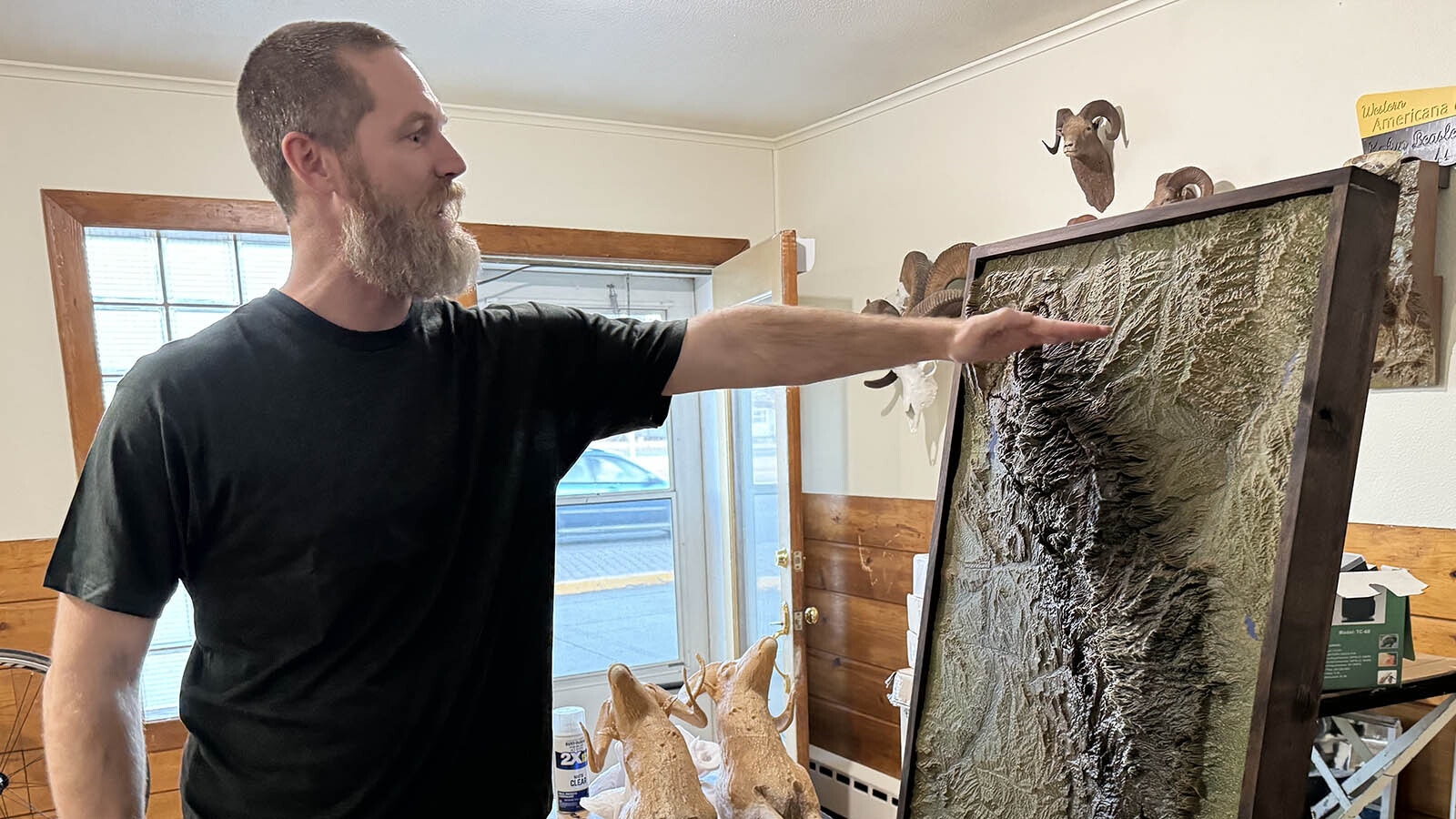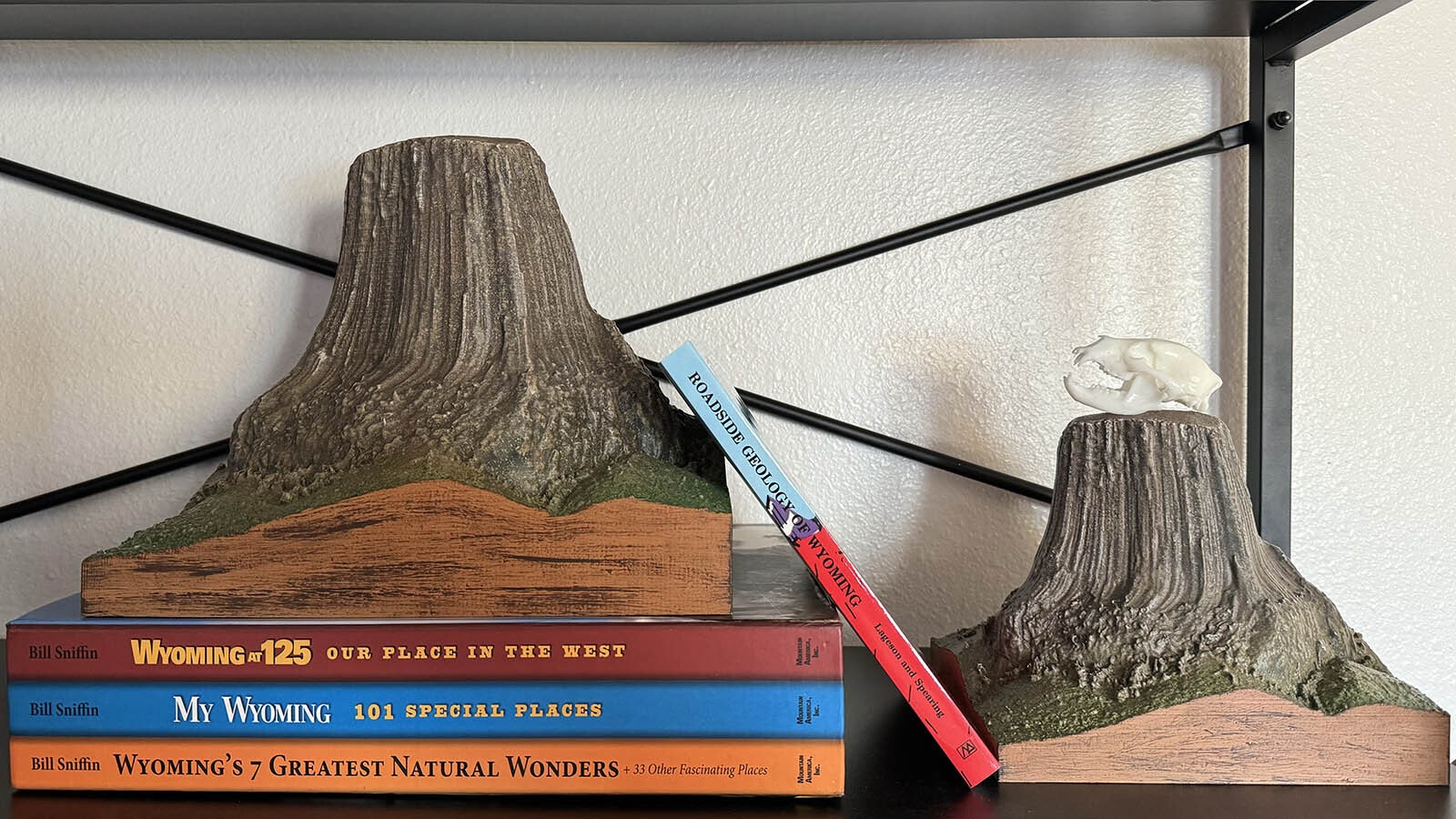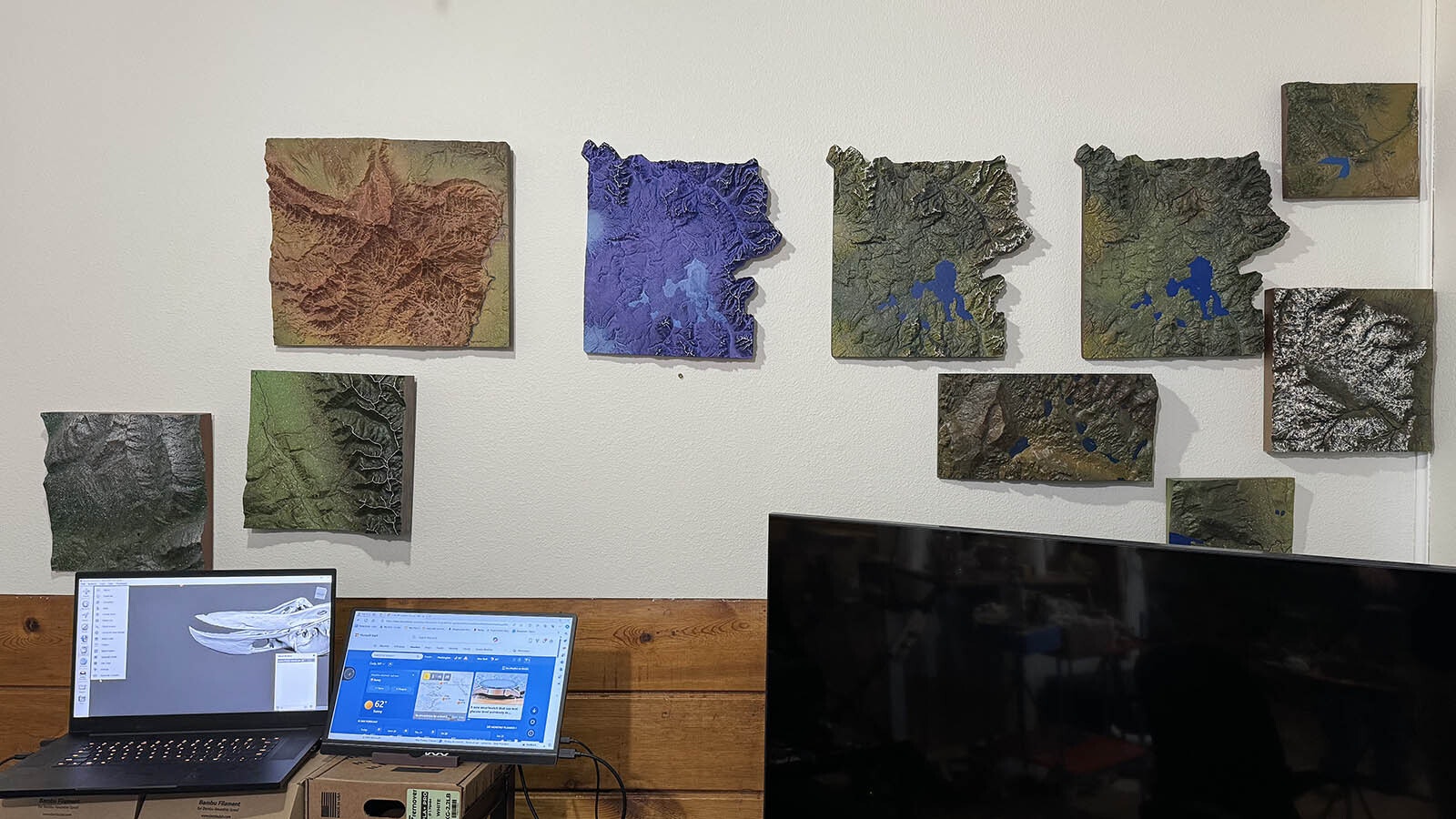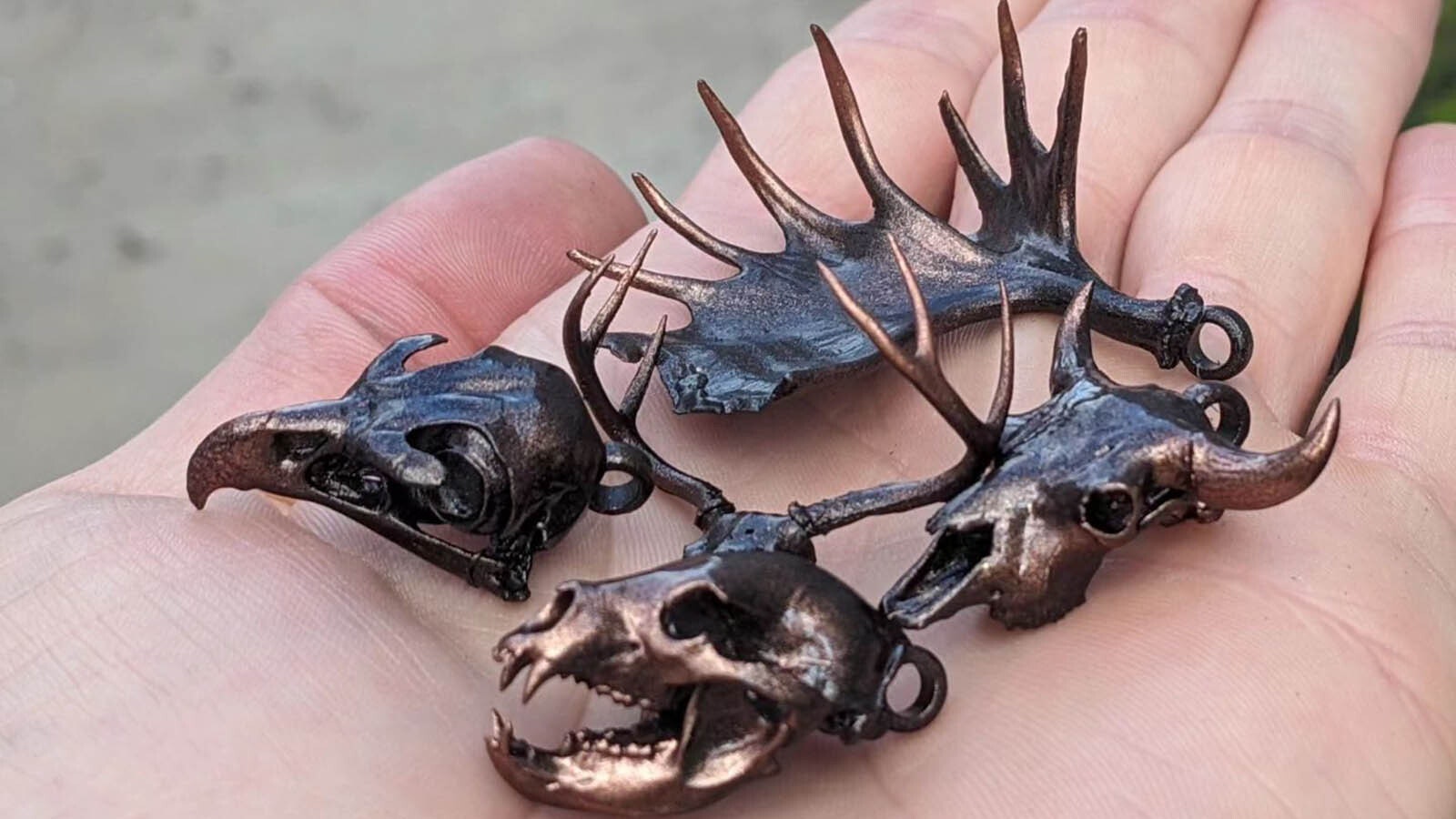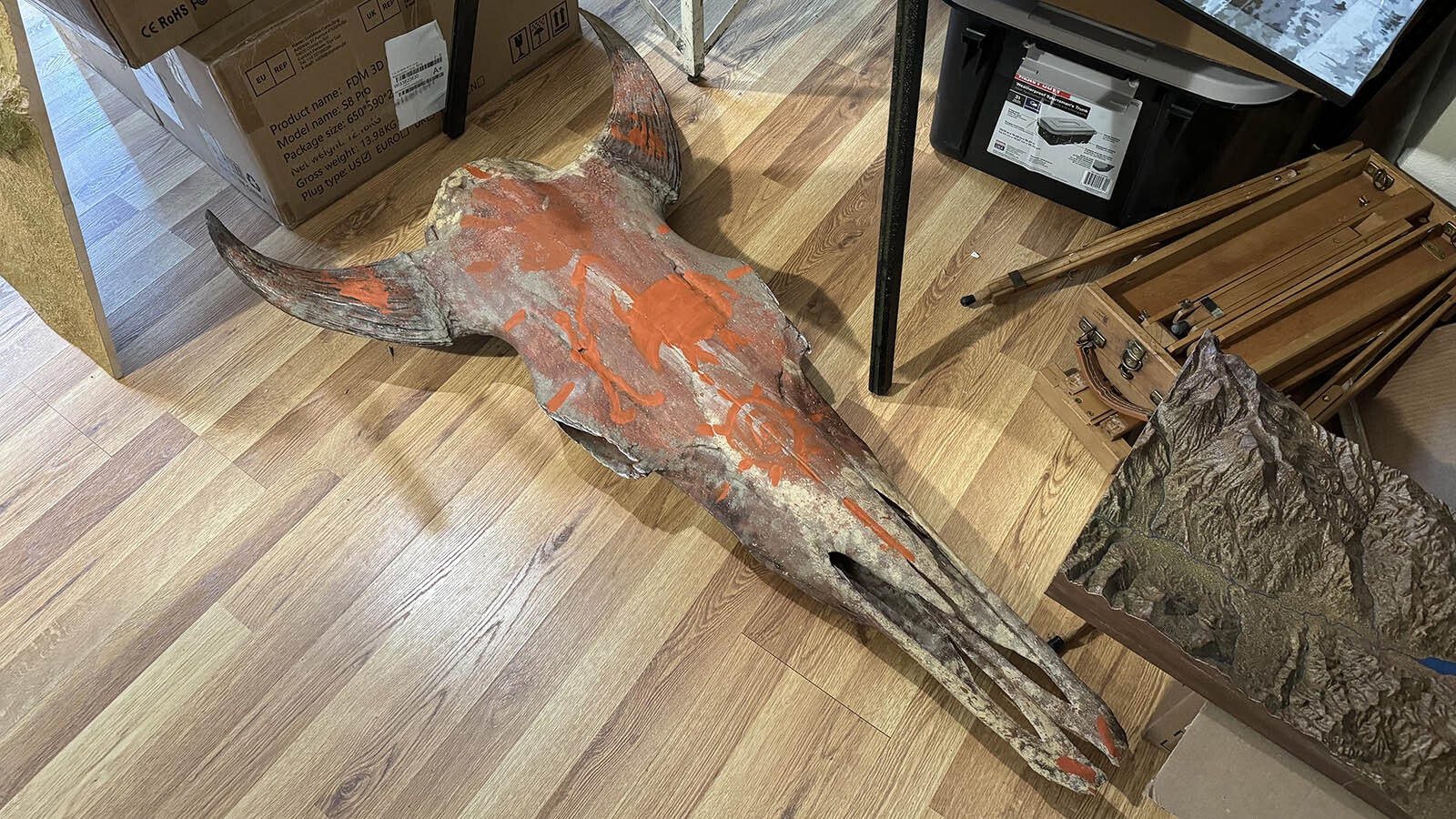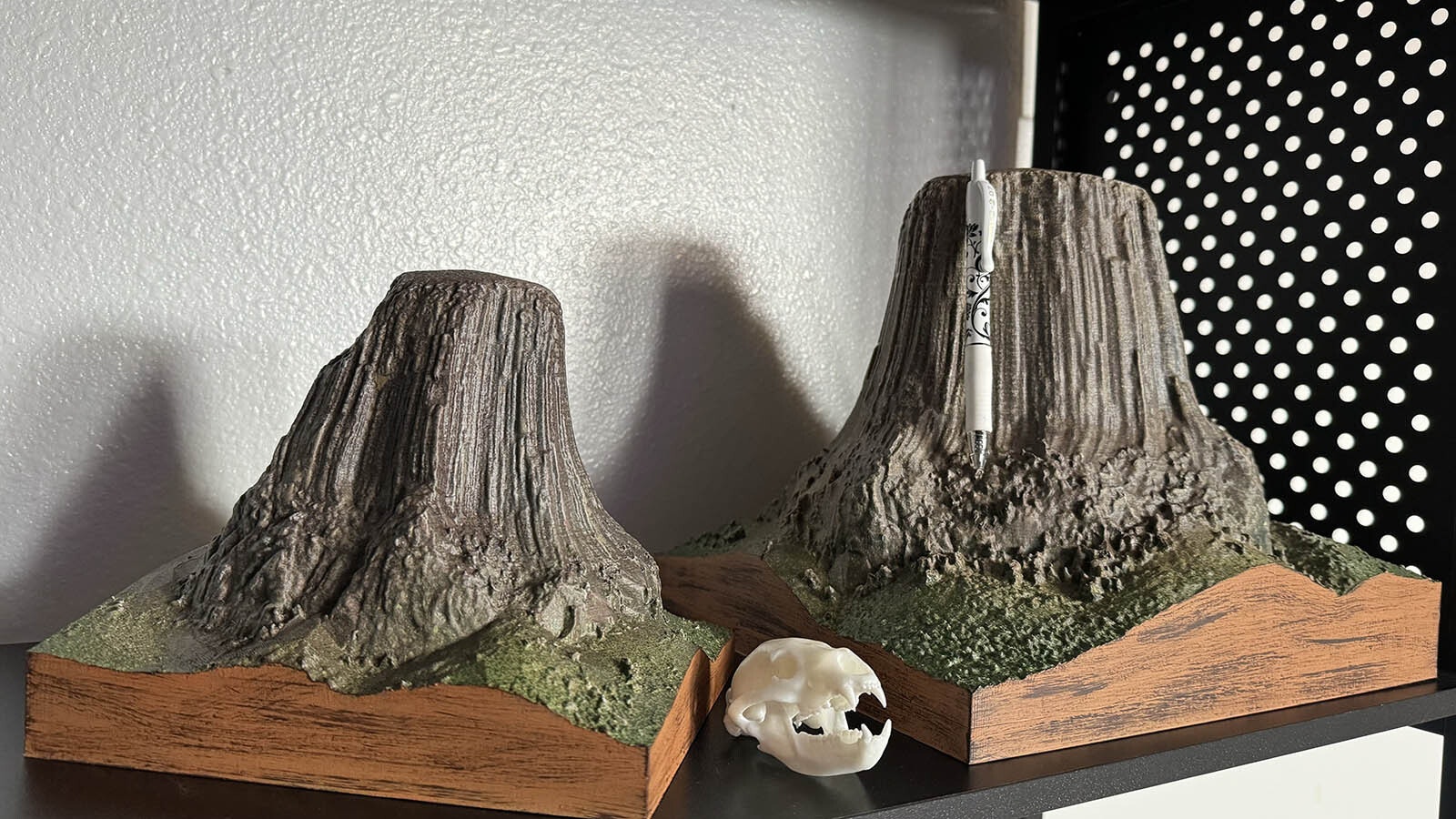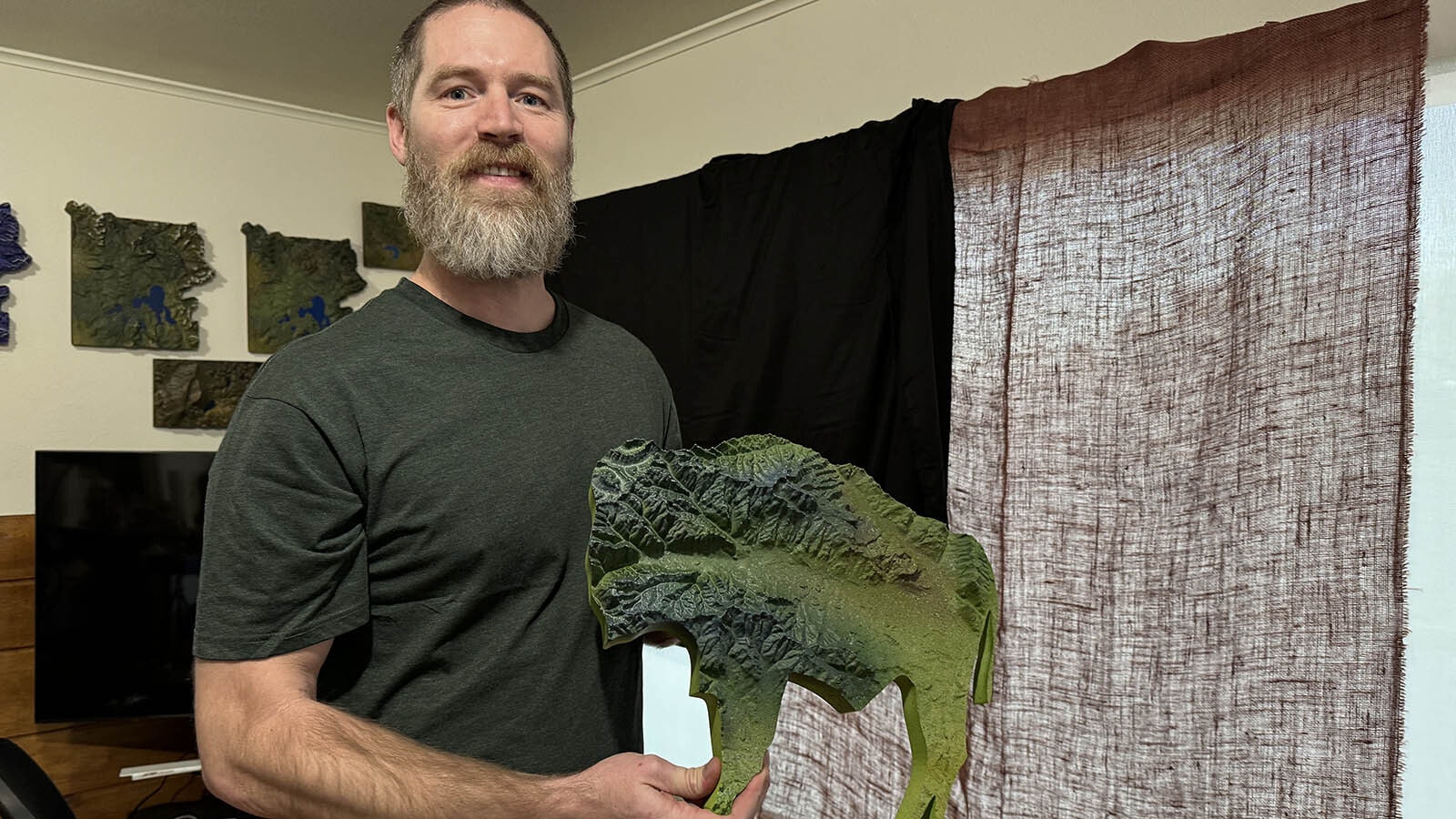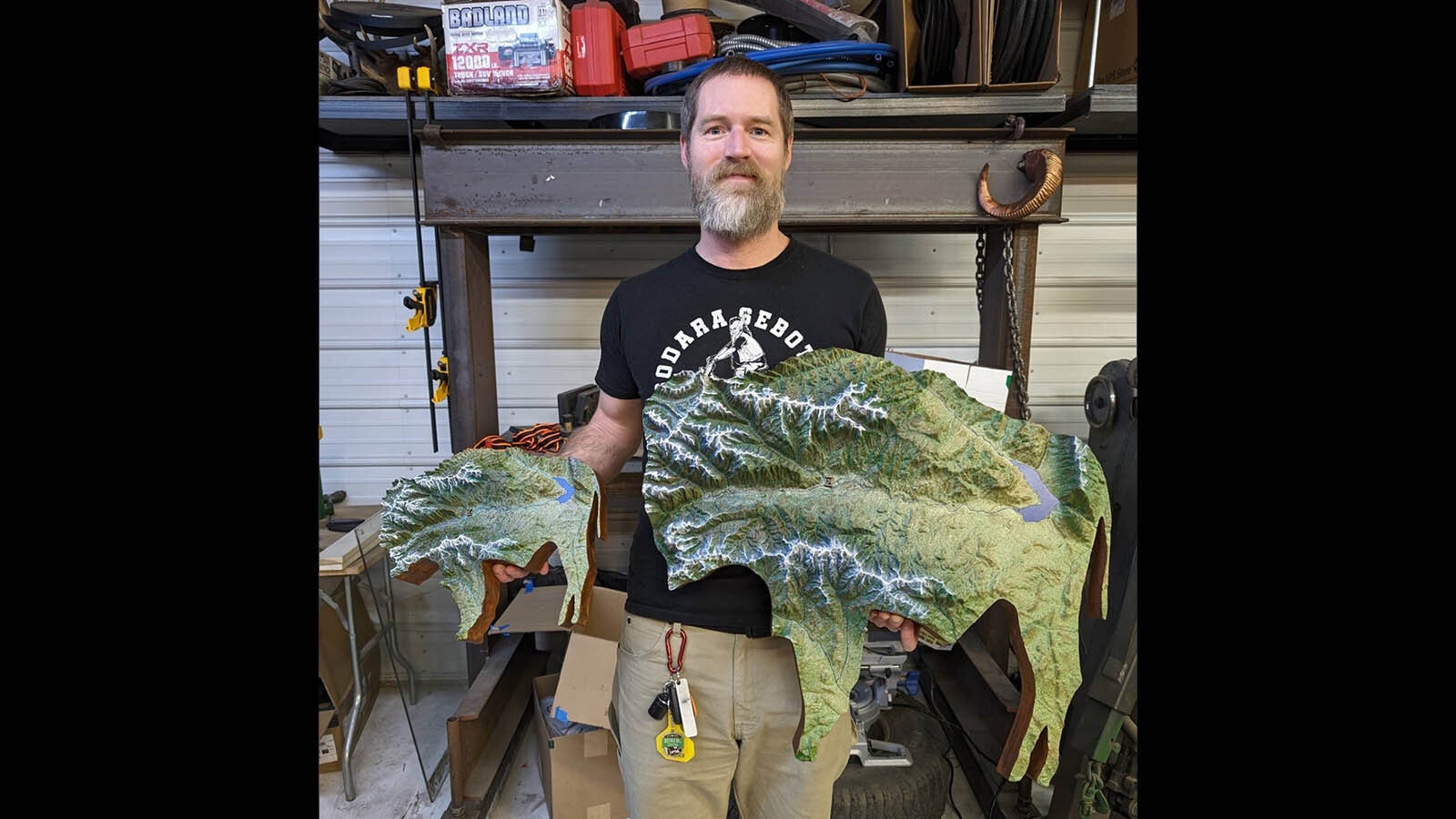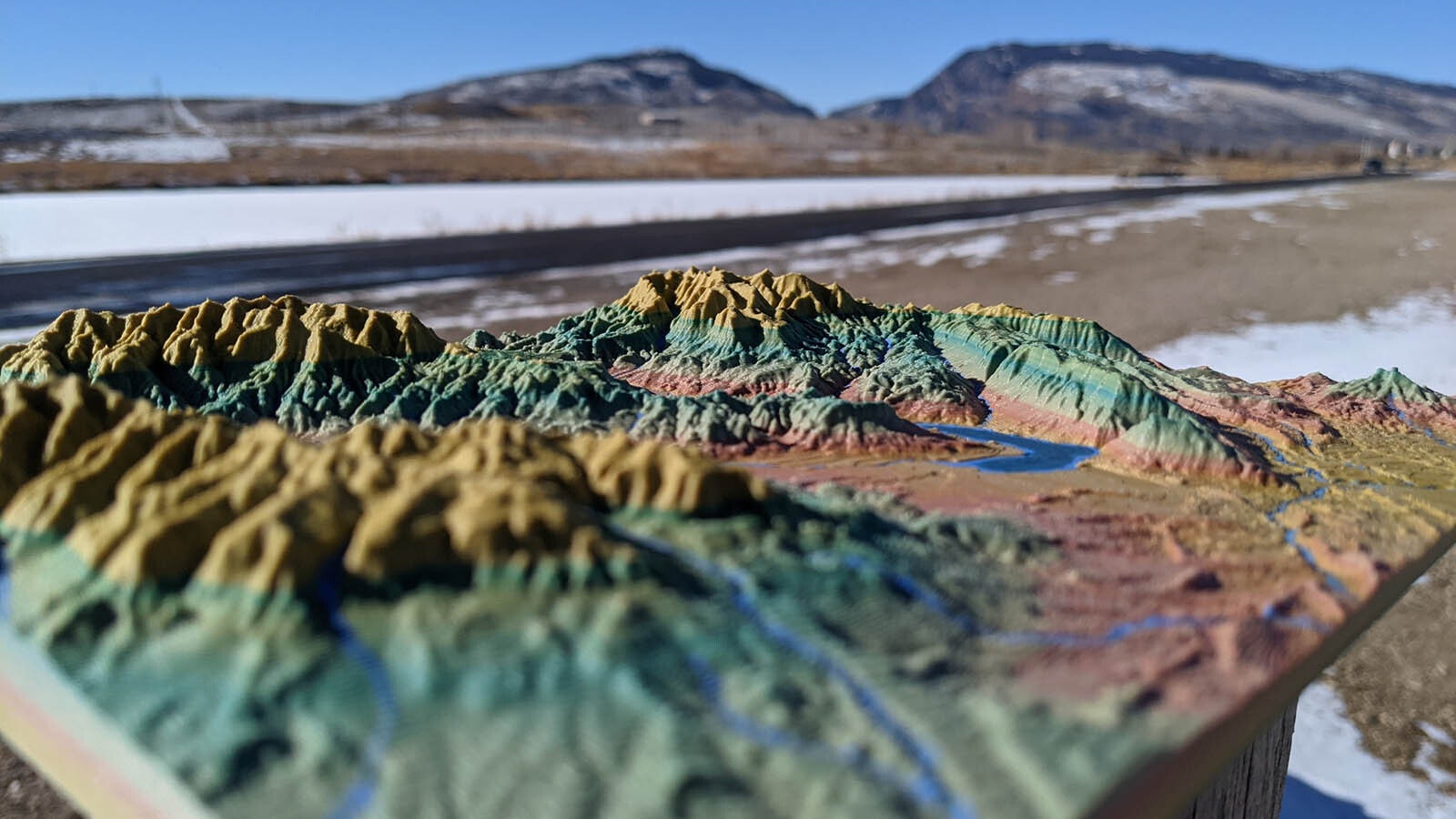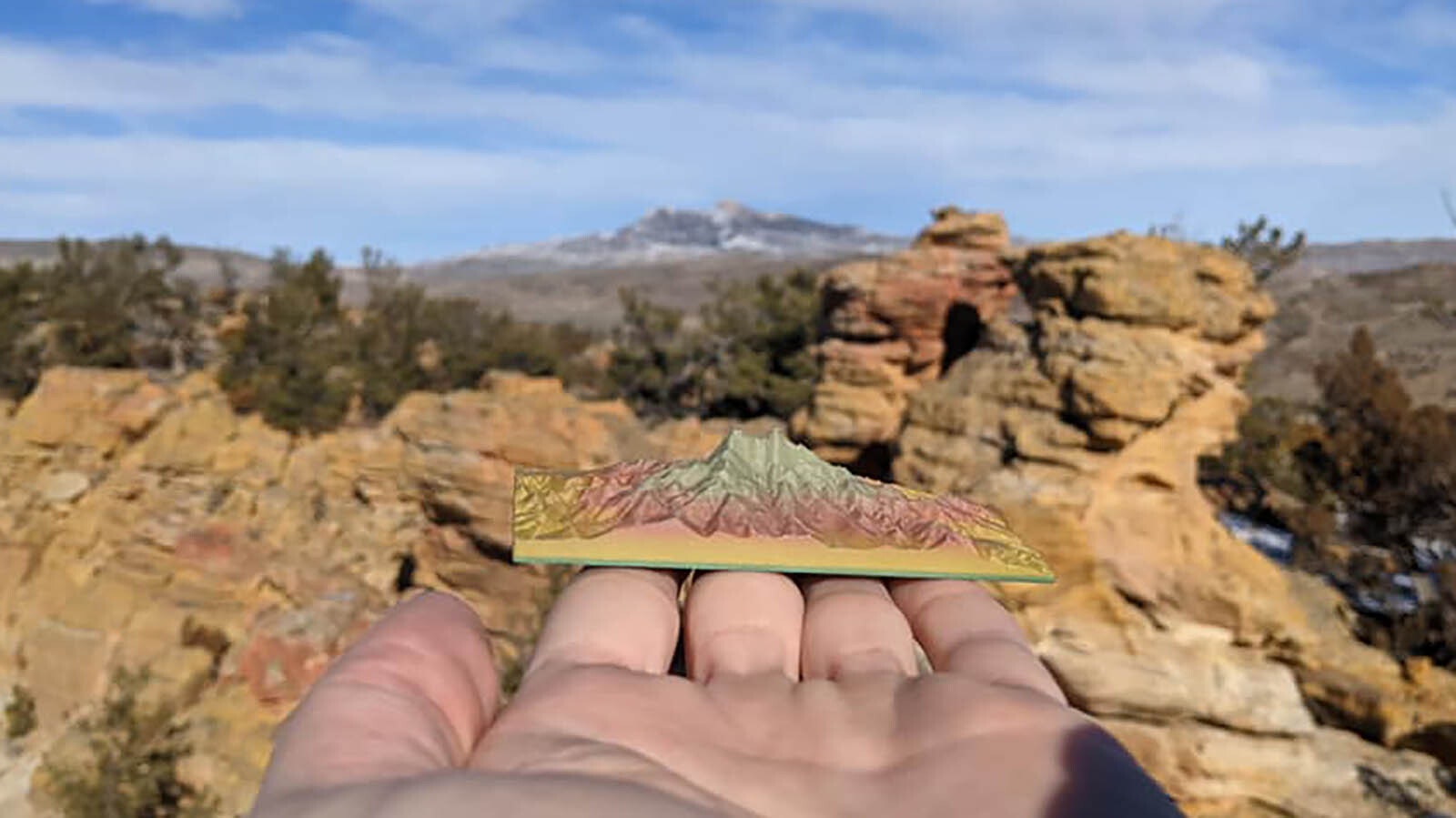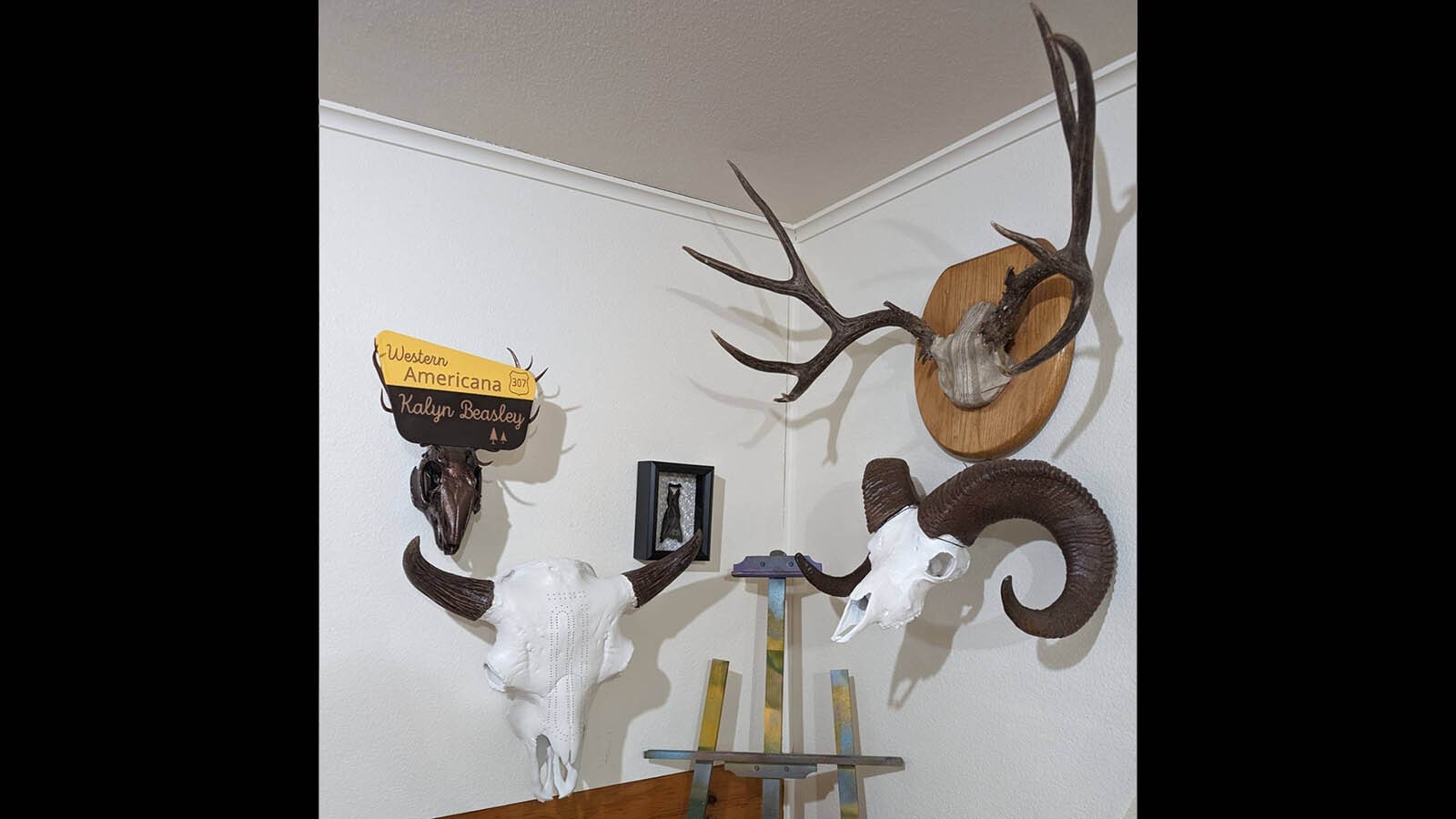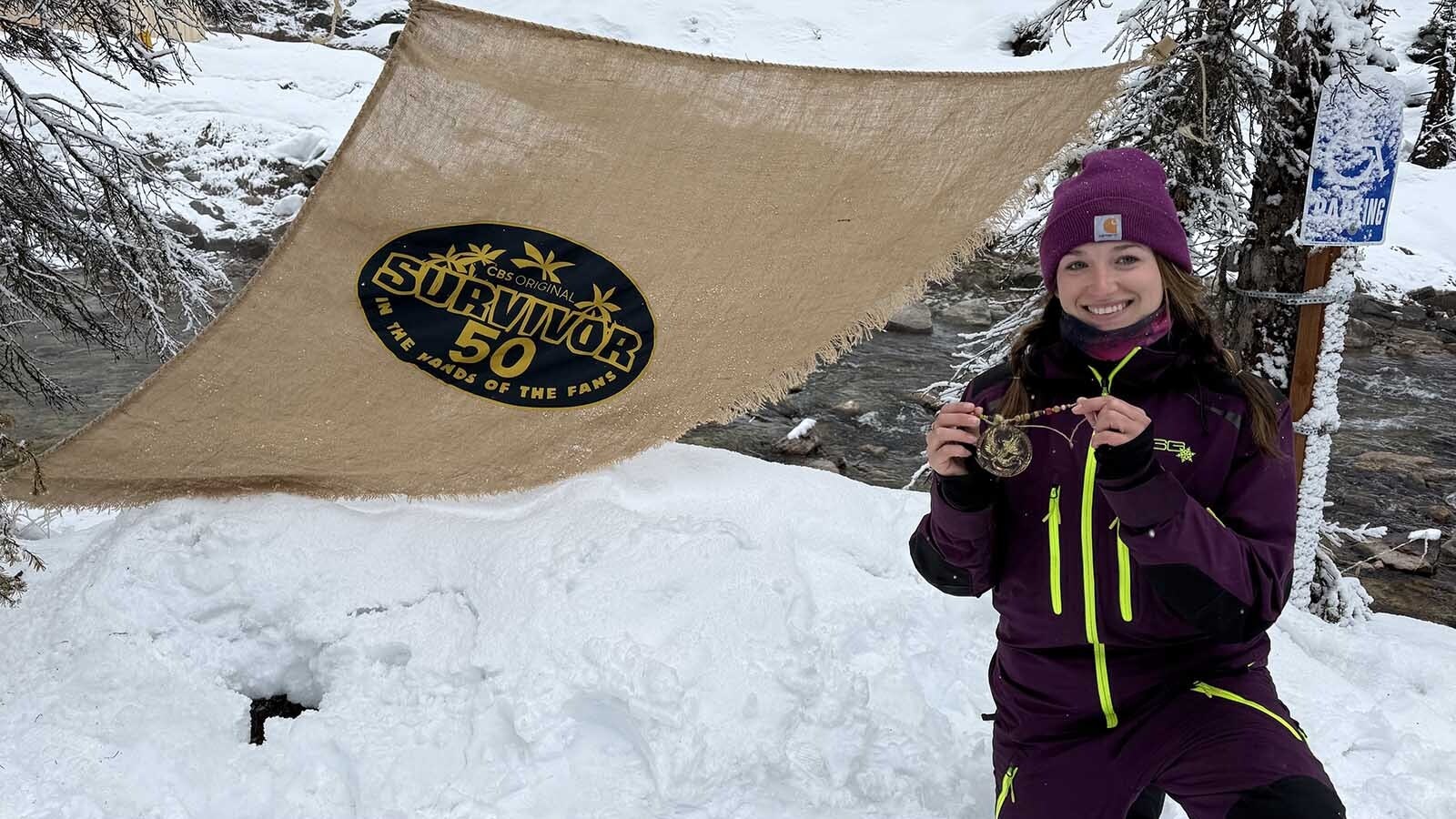Technology is revolutionizing the souvenir, modeling and collectibles industries as 3D printing becomes more accessible and affordable.
When Nicholas Resch downloaded a digital model of Devils Tower posted to the website Sketchfab by the Intermountain Region Geographic Resources Division of the National Park Service, like anyone else, he could 3D print his own model of the nation’s first national monument.
And in extraordinary detail.
But that wasn’t good enough for Resch, who wanted as close to a perfect miniature replica as possible.
The NPS file “was just the outside scan of Devils Tower,” he told Cowboy State Daily. “It had the color and everything in it, but I needed the 3D model.”
Luckily, Resch had a better model ready to go, and a few days later a pair of Devils Towers were sitting in his Cody studio, fully painted and ready for pickup.
That’s the nature of the rapidly evolving world of 3D printing. And even in Wyoming, its capabilities and demand are growing.
In 2024, the exploding virtual 3D printing community means the National Park Service’s Devils Tower schematic isn’t the best version of the iconic landmark from a technological perspective.
Now almost anyone can find and own a pocket-sized version of the geologic wonder in their hands in less time than driving to the real one.
And it’ll be much more detailed and realistic than any plastic-molded souvenir you’d get in the Devils Tower gift shop.
The implications for this evolving technology are nearly boundless, and for Wyoming’s prolific prehistoric fossil deposits, it allows ways to fill in the missing pieces of history.

Digital Landscapes
Resch owns Maps and Skulls in Cody. In his modest studio, he has several 3D printers that use plastic and resin to create unique, detailed and realistic works of art.
The studio’s wall features a number of topographical maps of Yellowstone National Park. Each is three-dimensional, with the depths of the valleys and heights of the mountains easily discernible.
Dozens of tiny bison, bear and raven skulls are neatly arranged on shelves or in boxes. Topographical maps of Wyoming sit in pieces, waiting to be glued together.
But Resch’s biggest sellers are his bison maps, topographic reliefs of various Wyoming landscapes printed in the pose of the iconic bison on the Wyoming State Flag.
“That buffalo map was just an idea,” he said. “I had a regular map and put that buffalo outline on the outside. People just love it, especially the Wyoming buffalo. Anywhere in Wyoming looks awesome with that bison.”
Resch was living in Taiwan when he first started tinkering with 3D printers.
“I started printing model trains and trucks for people,” he said. “When I moved back to the U.S., that wasn't much in demand around here. I tried many things, and maps and skulls are the most popular.”
Resch operates Maps and Skulls as his “side gig,” but he’s got plenty of orders lined up. And he has plenty of time to tinker, which explains the abnormally long bison skull he’d just finished painting when Cowboy State Daily caught up with him.
Nobody ordered an elongated bison skull. Resch stretched the 3D model, printed it, and assembled it just as a fun thing to do.
“I always like to try out different things,” he said. “You never know what people are going to like until you try and get it out there.”
Printing A Better Devils Tower
When it comes to Wyoming landmarks, there are few more recognizable than Devils Tower, and the National Park Service’s 3D model of it is highly detailed and fully colored. But it lacked the dimensions Resch needed for a stable 3D print.
But that’s where he’s thrived, finding good 3D models and making them extraordinary.
Devils Tower is managed by the NPS, but it’s also a world-renowned geologic formation. The U.S. Geological Survey is the best when it comes to mapping and scanning American rocks, and all its work is available online.
“There are tons of different data sets out there, but I use the USGS because it has the most detail,” he said. “They use drones with LIDAR to get in-depth information about the ground. The highest detail they get is one point every 10 yards or so. They could do literally anywhere.”
LIDAR — an acronym for light/laser imaging, direction, and ranging — uses lasers to create digital 3D representations of the earth’s surface. Such systems used to be large and incredibly expensive, but drone-sized LIDAR range sensors can now be bought for a few hundred dollars.
Even so, the USGS’s LIDAR model needed some tinkering. A few technical anomalies in the digital scan of the tower mean some of the rocks at its base were suddenly taller than the tower itself.
But with a little technical knowhow, Resch resolved the anomalies and sent the digital files to his 3D printers. Printing a 6-inch-tall Devils Tower in plastic took 20 hours, and a 10-inch model was finished in 40 hours.
It takes time, so Resch has multiple printers working on projects simultaneously. But for the quality, you can’t beat the price.
“Total material is maybe $35 for both models,” he said.
After painting them to resemble the genuine object, the two Devils Towers were ready for whatever bookshelf or office desk they were commissioned to occupy.
Working The Land
In the 21st century, 3D printing has gone from a science-fiction proposition to literal child’s play.
Printers can be acquired for modest prices, and trade shows across Wyoming are now filled with 3D-printed toys and puzzles created by everyday folks and small businesses.
Resch attends many trade shows. This allows him to showcase his bison maps, topographic reliefs and realistic and fantastical skulls. However, his landscape work is a bit beyond the skills of an amateur.
“I've done a lot of practice to get to this stage,” he said. “Lots of trial and error and learning different techniques, especially the painting. Not a lot of people paint stuff like this. So, I use some techniques and stuff I picked up along the way.”
On the day he visited with Cowboy State Daily, he was putting the finishing touches on his largest piece yet: a 2-by-3-foot print of the entire Bighorn Mountain Range, fully painted with every detail from Boysen Reservoir to the Bighorn Canyon National Recreation Area.
“It's very difficult to do something that size that looks good,” he said. “I think I have a niche area for making larger maps.”
The technology of 3D scanners and printers is advancing rapidly. But the potential is coming into focus. People can spend weeks roaming a Wyoming landscape, even property they own, and enjoy it over and over again as they view a three-dimensional map of that same property hanging on their living room wall.
Resch is continuing to print his tried-and-true bison maps and topographic reliefs of Yellowstone, the North and South Forks of the Shoshone River outside Cody, and many others. In the meantime, new frontiers await his printers.
But he’s always got room for another Devils Tower.
Contact Andrew Rossi at arossi@cowboystatedaily.com
Andrew Rossi can be reached at arossi@cowboystatedaily.com.

